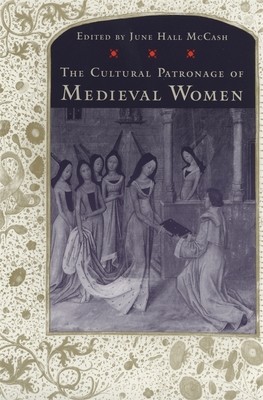
- We will send in 10–14 business days.
- Publisher: University of Georgia Press
- ISBN-10: 0820317020
- ISBN-13: 9780820317021
- Format: 15.7 x 23.5 x 2.6 cm, minkšti viršeliai
- Language: English
- SAVE -10% with code: EXTRA
The Cultural Patronage of Medieval Women (e-book) (used book) | bookbook.eu
Reviews
Description
The Cultural Patronage of Medieval Women is the first volume exclusively devoted to an examination of the significant role played by women as patrons in the evolution of medieval culture. The twelve essays in this volume look at women not simply as patrons of letters but also as patrons of the visual and decorative arts, of architecture, and of religious and educational foundations.
Patronage as a means of empowerment for women is an issue that underlies many of the essays. Among the other topics discussed are the various forms patronage took, the obstacles to women's patronage, and the purposes behind patronage. Some women sought to further political and dynastic agendas; others were more concerned with religion and education; still others sought to provide positive role models for women. The amusement of their courts was also a consideration for female patrons. These essays also demonstrate that as patrons women were often innovators. They encouraged vernacular literature as well as the translation of historical works and of the Bible, frequently with commentary, into the vernacular. They led the way in sponsoring a variety of genres and encouraged some of the best-known and most influential writers of the Middle Ages. Moreover, they were at the forefront in fostering the new art of printing, which made books accessible to a larger number of people. Finally, the essays make clear that behind much patronage lay a concern for the betterment of women.EXTRA 10 % discount with code: EXTRA
The promotion ends in 21d.07:28:43
The discount code is valid when purchasing from 10 €. Discounts do not stack.
- Publisher: University of Georgia Press
- ISBN-10: 0820317020
- ISBN-13: 9780820317021
- Format: 15.7 x 23.5 x 2.6 cm, minkšti viršeliai
- Language: English English
The Cultural Patronage of Medieval Women is the first volume exclusively devoted to an examination of the significant role played by women as patrons in the evolution of medieval culture. The twelve essays in this volume look at women not simply as patrons of letters but also as patrons of the visual and decorative arts, of architecture, and of religious and educational foundations.
Patronage as a means of empowerment for women is an issue that underlies many of the essays. Among the other topics discussed are the various forms patronage took, the obstacles to women's patronage, and the purposes behind patronage. Some women sought to further political and dynastic agendas; others were more concerned with religion and education; still others sought to provide positive role models for women. The amusement of their courts was also a consideration for female patrons. These essays also demonstrate that as patrons women were often innovators. They encouraged vernacular literature as well as the translation of historical works and of the Bible, frequently with commentary, into the vernacular. They led the way in sponsoring a variety of genres and encouraged some of the best-known and most influential writers of the Middle Ages. Moreover, they were at the forefront in fostering the new art of printing, which made books accessible to a larger number of people. Finally, the essays make clear that behind much patronage lay a concern for the betterment of women.

Reviews